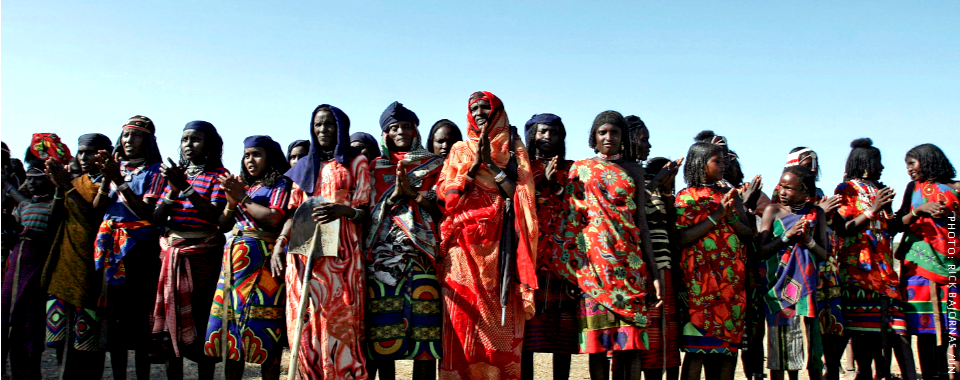BY HANNAH BLYTH AND DANIET MOGES
Ethiopia experienced a momentous year of political transformation in 2018. Despite a steadily worsening trend over the decade to 2017, Ethiopia is the most-improved country on the 2019 Fragile States Index (FSI). Improving by 5.3 points to a score of 94.2 in this year’s FSI, the country‘s performance could potentially herald a success story of building resilience through political reform. Significant political changes, which have seen a peaceful transition of power and a new Prime Minister who implemented bold reforms to boost economic and social inclusiveness, would appear to be the main drivers behind this dramatic shift.

The culmination of civil unrest in 2016-2017, that included widespread violent protests in the most populous regions of Oromia and Amhara, led to the resignation of Prime Minister Hailemariam Desalegn in February 2018. The peaceful transition of power to successor Abiy Ahmad, the 41-year old head of the Oromo Democratic Party (ODP) Secretariat, was praised widely as the change Ethiopia needed to enact political reforms. The son of an Oromian Muslim and an Amharahan Orthodox Christian, with a military service background, Prime Minister Ahmad represents for many a shift away from the center of power held by members of the Tigray People’s Liberation Front (TPLF) since the end of the civil war in 1991.
Since taking office in April 2018, Mr. Ahmed has instituted various reforms that aim to set the foundation for the county’s peace, security, democracy and economic growth. These have included boosting political inclusiveness, appointing women to 50 percent of his cabinet positions, freeing thousands of political prisoners, and inviting opposition parties into dialogue.1 An emphasis on increasing civic space and accountability for human rights abuses has also proved a key theme. He has lifted restrictions on websites and media, and appointed a former jailed dissident as head of the national electoral board.2 These reforms have been reflected in the significant improvement in Ethiopia’s FSI indicator scores for State Legitimacy, Human Rights and Rule of Law, and Factionalized Elites. The Human Flight and Brain Drain indicators also dramatically improved, propelled by reports of Ethiopian diaspora returning home amid the political change, including exiled opposition figures.3
While political reforms have dominated headlines in 2018, there remain vast structural level governance issues that will take much longer to address. While Ethiopia’s scores for the Uneven Economic Development and Economy indicators incrementally improved in this year’s FSI, urban and rural disparities remain. While the economy continues to grow, according to the African Development Bank‘s African Economic Outlook, almost a quarter of Ethiopia’s population of over 100 million continue to live in extreme poverty.4 As noted in FFP’s 2017 FSI analysis on Ethiopia, the centralized development agenda has also had an impact on social cohesion, particularly perceptions of economic exclusion of group-based identities.5 While greater social and political reforms may give regional constituencies more of a voice in inclusive development and job creation efforts at the national level, the current federalist system still poses barriers. Under the 1994 Ethiopian Constitution, constituent rights – such as representation in government jobs and local or federal bodies – are determined based on being considered ethnically indigenous.6 As Dr Bekalu Atnafu Taye from the University Addis Ababa describes, Ethiopia’s federalist structure is “highly ethnocentric,” which can exacerbate communal conflict risk.7 While the 2019 FSI score shows improvements under both Security Apparatus and Group Grievance indicators, the end of 2018 and beginning of 2019 have indicated risks of rising violence along group-based lines that will need to be carefully monitored.8
Despite the warning signs of communal violence domestically, on the international stage Ethiopia made historic strides on peace and security. In July 2018, Prime Minister Ahmed signed an historic peace agreement with neighboring Eritrea, formally ending the 20-year war between the two countries.9 This peace treaty helps to address long standing grievances between the two countries and will usher a new era of economic growth for both Ethiopia and Eritrea.
Ethiopia’s 2018 FSI scores reflect the inherent complexities that all countries face in managing both pressures and capacities. The historic political reforms ushered in by Mr. Ahmad in 2018 have already begun to create important new space for economic and social inclusion in Africa’s second most populous nation. The need for continued focus on closing the divide among provision of services between regions, focusing on job creation for a young population, and reforming governance structures to mitigate the polarization of populations along group-based lines are essential to building resilience. Given the dramatic shift achieved in 2018 alone, Ethiopia has shown it is well on the way to a stronger future.
Endnotes
1. https://www.theguardian.com/world/2018/jul/08/abiy-ahmed-upending-ethiopian-politics
2. https://www.reuters.com/article/us-ethiopia-politics/ethiopia-pm-meets-opposition-parties-promises-fair-elections-idUSKCN1NW0Y1
3. https://www.cnn.com/2018/08/03/africa/ethiopian-exiles-eye-return-intl/index.html
4. https://www.afdb.org/en/countries/east-africa/ethiopia/ethiopia-economic-outlook/
5. http://fundforpeace.org/fsi/2017/05/14/golden-era-of-growth-fails-to-mask-deeper-grievances-in-ethiopia/
6. https://www.nytimes.com/2019/01/03/opinion/ethiopia-abiy-ahmed-reforms-ethnic-conflict-ethnic-federalism.html
7. https://www.ajol.info/index.php/ajcr/article/download/167170/156607
8. https://www.dw.com/en/ethiopias-ethnic-conflicts-destabilize-abiys-reforms/a-47035585
9. https://www.africanews.com/2018/09/05/asmara-hosts-meeting-between-ethiopia-eritrea-somalia-leaders//
